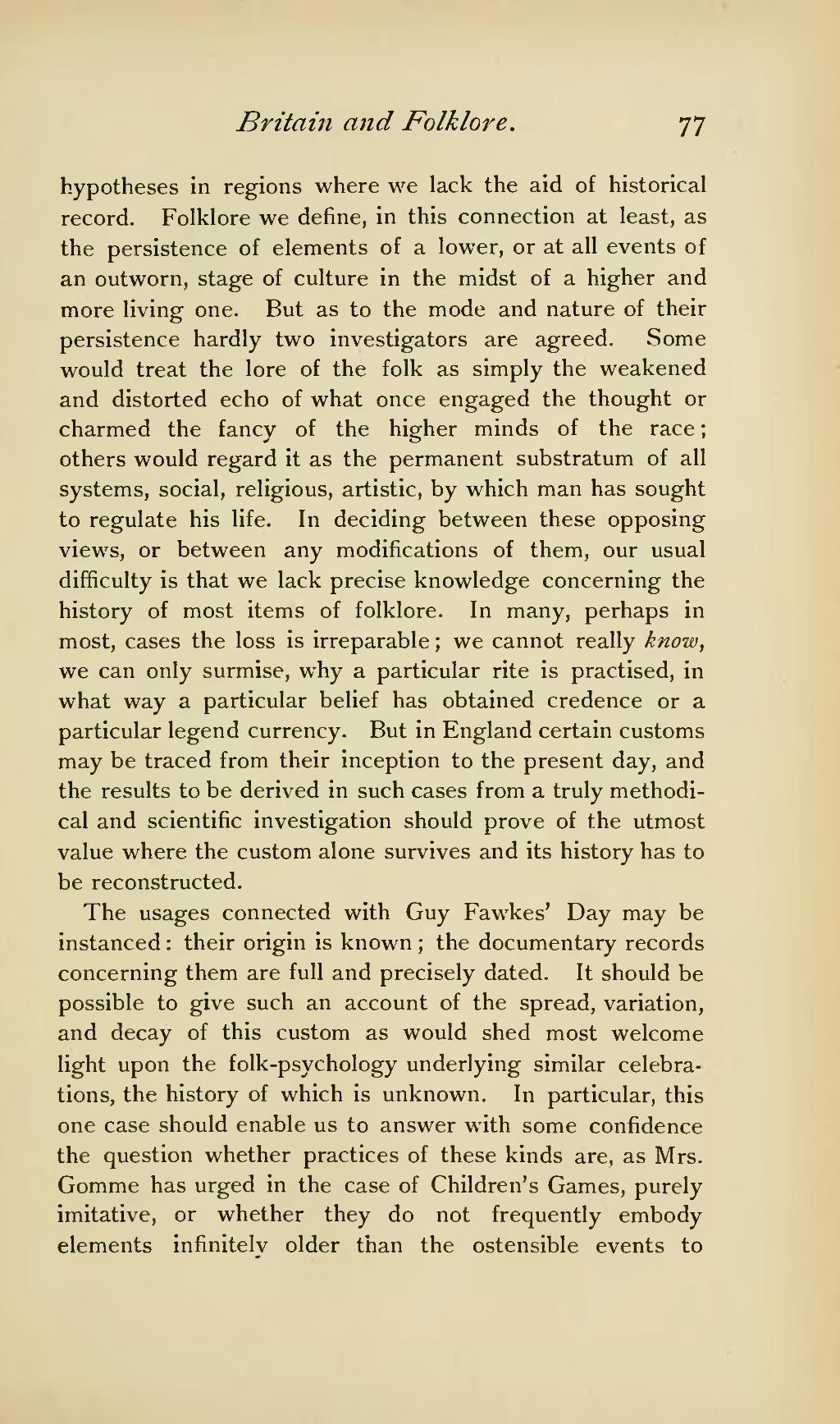hypotheses in regions where we lack the aid of historical record. Folklore we define, in this connection at least, as the persistence of elements of a lower, or at all events of an outworn, stage of culture in the midst of a higher and more living one. But as to the mode and nature of their persistence hardly two investigators are agreed. Some would treat the lore of the folk as simply the weakened and distorted echo of what once engaged the thought or charmed the fancy of the higher minds of the race; others would regard it as the permanent substratum of all systems, social, religious, artistic, by which man has sought to regulate his life. In deciding between these opposing views, or between any modifications of them, our usual difficulty is that we lack precise knowledge concerning the history of most items of folklore. In many, perhaps in most, cases the loss is irreparable; we cannot really know, we can only surmise, why a particular rite is practised, in what way a particular belief has obtained credence or a particular legend currency. But in England certain customs may be traced from their inception to the present day, and the results to be derived in such cases from a truly methodical and scientific investigation should prove of the utmost value where the custom alone survives and its history has to be reconstructed.
The usages connected with Guy Fawkes' Day may be instanced: their origin is known; the documentary records concerning them are full and precisely dated. It should be possible to give such an account of the spread, variation, and decay of this custom as would shed most welcome light upon the folk-psychology underlying similar celebrations, the history of which is unknown. In particular, this one case should enable us to answer with some confidence the question whether practices of these kinds are, as Mrs. Gomme has urged in the case of Children's Games, purely imitative, or whether they do not frequently embody elements infinitely older than the ostensible events to
